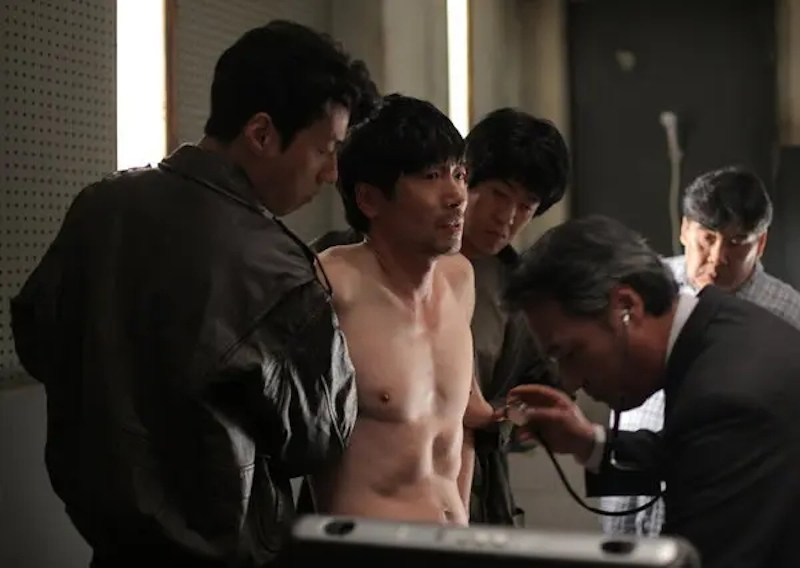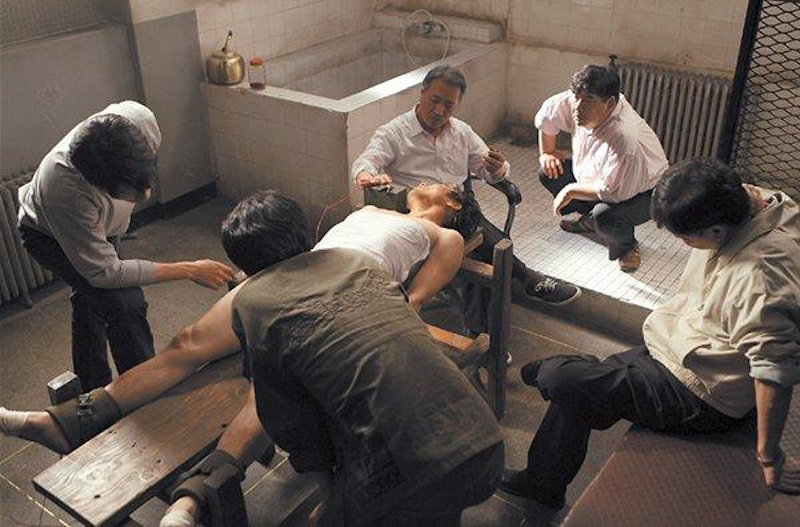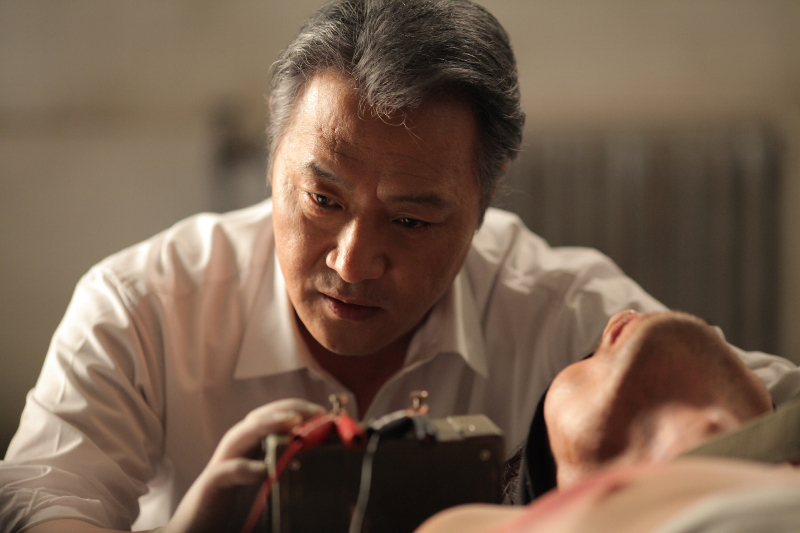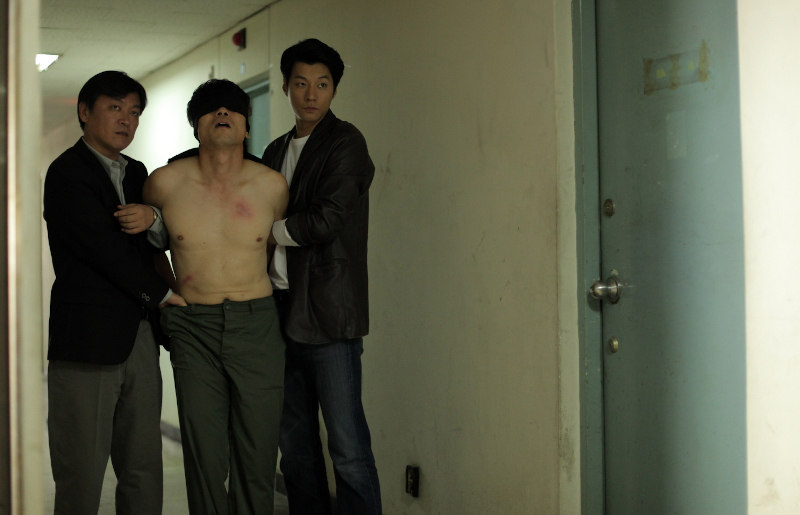Director – Chung Ji-Young – 2012 – South Korea – LEAFF Cert. 15 – 106m
*****
An activist is arrested and tortured into making a confession, although it’s unclear whether his torturers have any interest in getting him to spout truth rather than lies – plays as part of a strand showcasing director Chung Ji-Young at the 2023 London East Asia Film Festival (LEAFF) which runs from Wednesday, October 18th to Sunday, October 29th
In 1985, South Korea was a right-wing military dictatorship (in contrast to North Korea, which was then and remains today a left-wing military dictatorship). Determined to build a prosperous economy, the authorities would stop at nothing to quell any form of dissent, and this repression included torture. Activists fighting for a more liberal society were considered to be in league with North Korea, and thus any means of suppressing them could be used.
The film is based on the experiences of later Minister of Health and Welfare Kim Geum-tae (here played by Park Won-sang), who as a pro-democracy activist in 1985 complied with a request to visit the local police station only to find himself bundled into a car and driven to a torture facility (later revealed to be the eponymous Namyeong-dong) where he would spend the best part of a month. That incident is in the film, but not at the beginning as you might expect; instead, it comes as a flashback some way in.
The narrative itself starts off at Day One of his confinement then proceeds through his numbered days (and nights) of detention in chronological order. There is no opening verbal title or frame story to suggest that he might ever get out and, unless the viewer is aware of the history going in, no clue as to how it is going to end.

If you count occasional flashbacks and dreams as taking place in Kim’s mind, memory or subconscious, everything (prior to a coda section at the end) takes place within the facility. Kim is the main protagonist, but we also get to know the team of torturers assigned to him: a three-man detail under leader Kang Su-hyeon (Kim Eui-sung from Train To Busan, 2016), responsible in turn to the higher-up Lee Guen-an (Lee Kyung-young), nicknamed ‘The Undertaker’, who is sometimes present and sometime absent (Lee’s first absence of three or four days comes when he has to attend a conference elsewhere).
Two of the three subordinates Kim (Lee Cheon-hee) and Lee (Kim Jung-gi) come over as twentysomething men of average intelligence doing this because you’re got to do something to earn a living. They aren’t particularly committed, but provided they’re paid, they’ll mostly do what they’re told. They seem to enjoy making their charge suffer. Their less bright colleague Baek (Seo Dong-soo from Thirst, Park Chan-wook, 2009) likewise does what he’s told, but is the type that might be a little more kind or generous when his colleagues and superiors are not around.

The ensuing catalogue of horrors – beatings, waterboarding, electric shock treatment and more – is never played merely for vicarious thrills in the manner of horror movies where it’s all about the ritual of, how much can you as a member of the audience take, a solo or group audience rite of passage. Rather, it’s an attempt, and a highly successful one, at showing the mechanics of torture. The protagonist is initially asked to write down the story of his life, leaving nothing out. This takes him three or four days. After that, he’s subjected to various physical forms of abuse for “not co-operating”. One of the most chilling moments occurs early in a waterboarding sequence when head torturer Lee, dissatisfied with the jet from a shower head, discards the head so he can simply use the water straight from the end of the length of exposed flexible piping.
It becomes impossible to fathom exactly what it is the torturers want from their victim. Initially, it would appear to be truth, but that notion is discarded the moment he is accused of not co-operating after he has told the truth. As the voice of his wife (Woo Hee-Jin) says in his head, “they want you to lie”. In the end, he supplies names, not because they have any basic in fact but simply to make the process stop. And that, via a previous torture victim, may well be how the torturers got his name in the process.

In a coda, Kim Geum-tae, now a minister in a more democratic and accountable government, visits former chief tortuer Lee Guen-an, now a Catholic priest. You might expect Kim to forgive Lee – he makes the effort to visit after all, but in the event, he can barely bring himself to say anything. Forgiveness is costly, and perhaps here it quite simply would cost too much.
The film seems to perfectly capture the mindset of torturers in the contemporary world and deserves to be widely seen (something sadly unlikely to happen with a Korean movie from 2012) as it speaks directly both to human rights issues and to the question of whether torture actually works in terms of securing information – this film suggests in no uncertain terms that it does not.
A masterpiece: full marks to LEAFF for putting together this strand in general and for showing this film in particular.
National Security plays as part of a strand showcasing director Chung Ji-Young at the 2023 London East Asia Film Festival (LEAFF) which runs from Wednesday, October 18th to Sunday, October 29th.
Trailer (Korean, no subs):
LEAFF director strand trailer:
